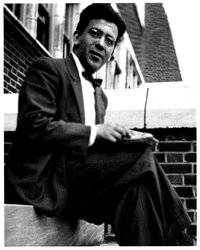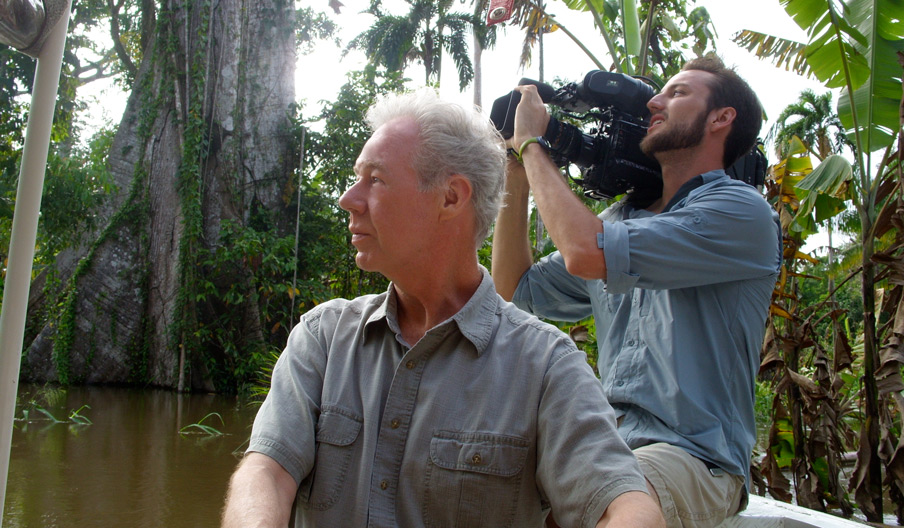Leading Things You Didn’t Start: Winning Big When You Inherit People, Places, and Possibilities By Tyler Reagin (WaterBrook, 2021, 208 pp. $22.00)
Reagin’s breezy, almost folksy way of relating personal stories (and pop-culture references) will appeal to some readers and not to others—it’s hard to imagine anyone having a lukewarm response to his writing style. That aside, those in theological education will find relevant material here, and the questions Reagin raises may help those who have “inherited people, places, and possibilities” sort through particular challenges they face.
Many of the book’s insights are from the author’s time leading Catalyst, a Christian leadership development organization that he didn’t start. He underscores the importance of understanding, honoring, and learning from the past without getting stuck in it. And Reagin, a Gordon-Conwell graduate, encourages new leaders of existing organizations to look at the fruits of the spirit (Galatians 5), as well as self-awareness and curiosity, to find useful qualities to cultivate and employ.
The book includes interviews with four individuals who lead (or led) things they themselves did not start: Buzz Williams, basketball coach at Texas A&M; Cheryl Bachelder, former CEO of Popeyes; Jim Daly, president of Focus on the Family; and Jimmy Rollins, lead pastor of i5 City Church. These voices round out Reagin’s and illuminate the principles he presents. The book concludes with a step-by-step plan for the first four weeks of leading an existing organization.
Tornado God: American Religion and Violent Weather By Peter J. Thuesen (Oxford University Press, 2020, 293 pp. $29.95)
This is a sweeping history of how Americans have thought theologically about tornadoes, a weather phenomenon that occurs more frequently in the United States than anywhere else in the world. Thuesen, a professor of religious studies at Indiana University-Purdue University Indianapolis, considers a number of tornadic events, including the Tri-State Tornado of 1925, the Palm Sunday tornado outbreak of 1965, the 1974 Super Outbreak, and the 2011 Joplin tornado. He regards these events as a way to understand the ways Christian Americans of various theological stripes—leaders and everyday believers alike—interpret the meaning of natural disasters, the problem of random tragedy, the limits of what God can control, and the factors and consequences of climate change.
Of particular interest for theological educators are the many mentions of seminary faculty members and administrators: nineteenth-century professors Charles Hodge of Princeton Seminary; Moses Stuart of Andover Theological Seminary; and David Calhoun Marquis of McCormick Seminary; and twentieth-century professors Georgia Harkness of Garrett Biblical Institute (precursor to Garrett-Evangelical Theological Seminary); Reinhold Niebuhr of Union Seminary; and Langdon Gilkey of the University of Chicago Divinity School. These are some of the sources who weigh in on the momentous questions that emerge in the aftermath of a tornado.
Thuesen reveals how the distinctively American tornado tells us something distinctive about American religious sensibilities. This carefully researched, skillfully written book won Christianity Today’s 2021 Book Award for History/Biography.

Rabbi Abraham Joshua Heschel (inset) lived out his faith, as filmmaker Martin Doblmeier shows in the fourth film of his Prophetic Voices series.
Spiritual Audacity: The Abraham Joshua Heschel Story, directed by Martin Doblmeier (Journey Films, 2021, 57 minutes)
One of the 20th century’s most influential public theologians and activists, Abraham Joshua Heschel was a graduate student in Berlin when the Nazis came to power. In 1940 he escaped to the United States, and this Polish-born rabbi—a son and grandson of rabbis—joined the faculty of the Hebrew Union College in Cincinnati.
The film begins not in Poland or Germany or Cincinnati, however, but in Alabama, where in 1965 Heschel joined Martin Luther King Jr. in leading civil rights protesters across the Edmund Pettus Bridge from Selma to Montgomery.
With archival photos and footage of Heschel as well as interviews with theologians, civil rights leaders, and scholars—including his daughter, Susannah—the film traces how his concerns with racial justice, interfaith relations, and the morality of the Vietnam War grew out of his love of mysticism, piety, the Hebrew prophets and traditions of his faith. This is the fourth film in Martin Doblmeier’s Prophetic Voices series. It will air on public television stations in May.

Verbatim
Hold on to your interior life and to your prophetic witness despite this COVID-19. And in any other adversity which might come your way, hold on to your interior life and your prophetic witness.…Do not be silent. For such a time as this, I charge you to bring a word of hope, to reimagine a new world order, and to undertake an action of resistance to the old ways. “For if you remain silent at this time, relief and deliverance for God’s people will arise from another place, but you and your father’s family will perish. And who knows but that you have come to your royal position for such a time as this?” (Esther 4:14)
— Iva E. Carruthers, General Secretary of the Samuel DeWitt Proctor Conference, from her Commencement Address at the McCormick Theological Seminary 2020 Commencement ceremony (full address is available on YouTube)